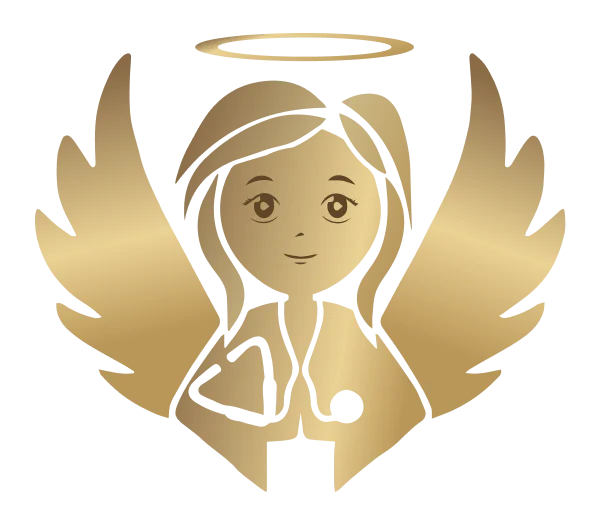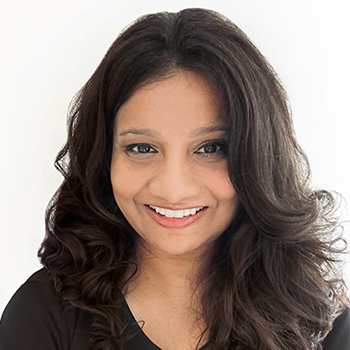Bipolar
Disorder
Bipolar disorder treatment really works if the symptoms of bipolar disorder are identified on time.

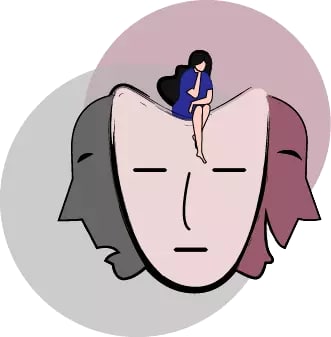
What is a Bipolar Disorder?
Bipolar Disorder, as the name suggests, causes two-poles or extremes of mood. A person with bipolar disorder can experience extreme lows (depression) or extreme highs (mania, hypomania, or excitement). To have a diagnosis of bipolar disorder a person must experience both mania (or hypomania) and depression, not just depression alone. Individuals with bipolar disorder may have ‘euthymic’, or normal mood between manic or hypomanic and depressive episodes or may experience chronic irritability.
Previously known as manic depression, bipolar disorder is a type of mood disorder that can be further divided into two types – Bipolar I and Bipolar II, which is why there is sometimes confusion about diagnostic criteria.
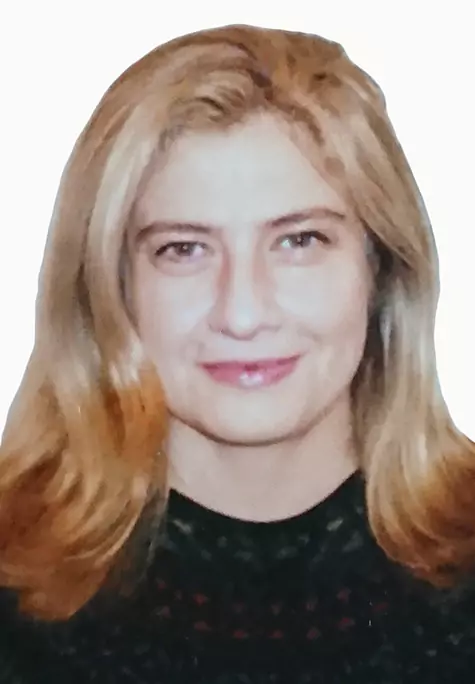
Dr. Valeria Serban
Board Certified Psychiatrist with Multiple State Licenses MBBS (MD)
Dr. Valeria Serban is a neuropsychiatrist .
She is certified by the American Board of psychiatry and neurology and is an expert in the treatment of bipolar disorder.
As well as treating mania she treats complications of bipolar disorder including depression, anxiety, irritability, insomnia, OCD and panic attacks.
Dr. Serban is passionate about providing optimum patient care and looks forward to helping you with the ups and downs of managing bipolar disorder.
Through medication management and therapy Dr Serban enables patients manage their symptoms and to find fulfillment in their personal and professional lives.
Medical School
Neurology Residency Training
Master of Philosophy (M.Ph.) - Neuroscience
Internal Medicine Residency
Neurology Residency
Doctor of Philosophy (Ph.D.) - Neuroscience
Clinical Neurophysiology Fellowship
Board Certification

Dr. Tony Issac
Board Certified Psychiatrist in New York & New Jersey (MD)
Dr. Tony Issac psychiatrist with a special interest in the treatment of bipolar diorder.
Dr. Issac is double board certified in general psychiatry and addiction psychiatry. He is an expert in helping patients with bipolar disorder manage addiction.
Dr. Issac works with patients to treat depression, mania, irritability, insomnia and other complications of bipolar disorder.
Dr. Issac utilizes a warm, non-judgemental approach, to connect with patients and help them through the ups and downs of their illness.
As well as treating symptoms of bipolar disorder, Dr Issac is committed to helping patients achieve their personal and professional goals and thrive despite challenges.
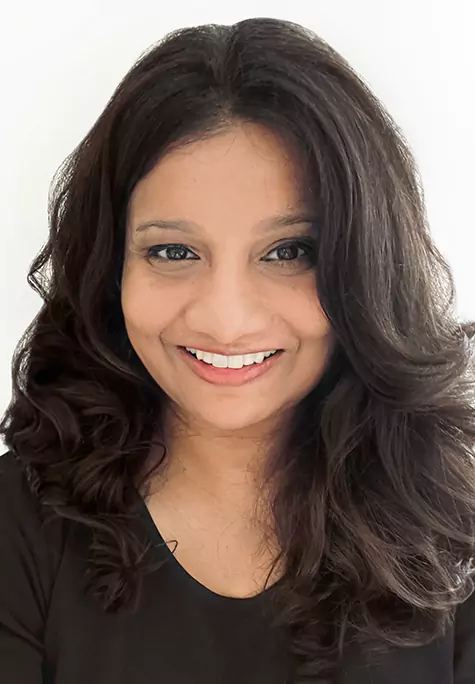
Dr. Gundu Reddy
Board Certified Psychiatrist with Multiple State Licenses MBBS (MD)
Dr. Gundu Reddy is a Board Certified Psychiatrist with over fifteen years of experience practicing clinical psychiatry experience. She also has ten years of experience practicing forensic psychiatry. Dr. Reddy has trained in medication management, psychodynamic psychotherapy, and cognitive behavioral therapy.
Dr. Reddy is interested in integrative psychiatry and believes multiple factors should be considered when evaluating and treating a patient. This, as per Dr. Reddy at includes genetic and developmental factors, medical illness, nutrition, hormones, and environmental and dynamic factors.
Dr. Reddy believes that it is extremely critical to understand psychodynamic conflict and the causes of symptoms while prescribing medication, family, or relationship therapy, understanding psychodynamic conflict and causes of symptoms as will help enhance the quality of care. Apart from psychodynamic training Dr Reddy also has a background in integrative psychiatry and treatment resistance.
Schedule an Appointment with one of our Online Psychiatrists.
Clinical Services: California, Florida, Illinois, New Jersey, New York, South Carolina, Tennessee

Forensic Psychiatry Services: All of the US and Canada
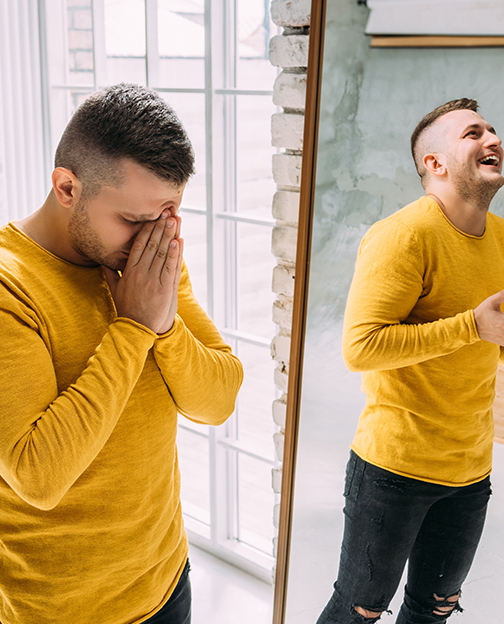
Bipolar I disorder
Requires at least 1 manic episode, which can be preceded or followed by hypomanic and/or major depressive episodes.
Note:
A manic episode comprises criteria 1-4, and at least 1 manic episode is required for the diagnosis of bipolar I disorder.
Diagnostic Criteria for Bipolar I Disorder
To be diagnosed with bipolar I disorder, it is necessary to meet the following criteria that define a manic episode:
Manic Episode
01. Period of abnormally elevated or irritable mood and unusually increased goal-directed activity or energy. This period should last at least 1 week and persist through most of the day, most days.
02. Unusual behavior, erratic moods and increased energy levels, 3 or more of the bipolar symptoms should be significantly present including:
- Inflated self-esteem or grandiosity. Reduced need for sleep.
- Excessive talkativeness, pressured speech, interrupting.
- Flight of ideas or racing, distractibility or easily drawn to irrelevant external stimuli.
- Increase in goal-directed activity or psychomotor agitation (i.e., non-goal-directed activity)
- Over involvement in high-risk activities or impulsive decisions.
03. Mood disturbances that cause impairment in social or occupational functioning or require hospitalization to prevent harm to self or others. Symptoms are accompanied by psychotic features such as hallucinations, delusions and/or loss of touch with reality. Symptoms and areas of impairment are noticeable to others.
04. Manic episode is not attributable to substance abuse, prescription medication or to another medical condition.
Diagnostic Criteria for Bipolar II Disorder
To be diagnosed with bipolar II disorder, it is necessary to meet the following criteria that defines a hypomanic episode as well as the criteria for a current or past major depressive episode:
Hypomanic Episode
01. Continuously elevated, expansive, or irritable mood and increased activity or energy. Symptoms should last at least 4 consecutive days and be present through most of the day, nearly every day.
02. During this period of mood disturbance and high energy levels, 3 (or more) of the following symptoms should be persistent and showcase a noticeable change from usual behaviour:
- Inflated self-esteem or grandiosity.
- Reduced need for sleep.
- Rapid speech or pressured speech
- Flight of ideas, racing, or distractibility to irrelevant external stimuli.
- Increase in goal-directed activity or psychomotor agitation
- Over involvement in high-risk activities with painful consequences.
03. A hypomanic episode presents with changes in behavior and functioning that is uncharacteristic of the individual and are observable by others.
04. Episode is not severe enough to cause marked impairment in social or occupational functioning or to necessitate hospitalization. There are no psychotic features. If there are psychotic features, the episode is, by definition, manic.
05. Hypomanic episode is not attributable to the physiological effects of a substance (e.g., drug of abuse, medication or other treatment).
References
https://pubmed.ncbi.nlm.nih.gov/33278937/
https://pubmed.ncbi.nlm.nih.gov/29516993/
https://www.ncbi.nlm.nih.gov/pmc/articles/PMC4195640/
https://pubmed.ncbi.nlm.nih.gov/29956510/
https://www.ncbi.nlm.nih.gov/pmc/articles/PMC5858935/

Bipolar II disorder
Requires at least 1 major depressive episode and at least 1 hypomanic episode, but no manic episode. Hypomanic episodes are sometimes mild and often missed, which is why individuals with bipolar disorder type II are often never diagnosed.
Note:
A hypomanic episode comprises criteria 1-5. A hypomanic episode along with major depressive episode should have occurred, no manic episode should have ever occurred, and there should be no psychotic features for the diagnosis to be bipolar II disorder.

Note:
Criteria 1-3 constitute a major depressive episode Individuals with bipolar disorder often experience a more severe form of depression, often with suicidality, which is why individuals suffering from untreated bipolar depression have a high rate of suicide
Major Depressive Episode
01. 5 or more of the following symptoms occurring during the same 2-week period with at least 1 of the symptoms being depressed mood or loss of interest or pleasure:
- Feeling sad, empty, or hopelessness observed nearly every day
- Diminished interest or pleasure in most activities most of the day
- Significant unintentional weight loss or weight gain
- Insomnia or hypersomnia most days
- Psychomotor agitation, restless or retardation observed nearly every day
- Fatigue or loss of energy most days
- Feelings of worthlessness, excessive or inappropriate guilt nearly every day.
- Diminished ability to think or concentrate, or indecisiveness, nearly every day
- Recurrent thoughts of death or suicidal ideation, with or without plan
02. The depressive symptoms cause significant distress or impairment in social or occupational functioning.
03. Depressive episode is not attributable to the physiological effects of a substance or another medical condition.
Differences between Bipolar Disorders
While there are several differences between the types, the main differentiating factor is the severity of the mania or hypomania episodes. This means bipolar type I requires a manic episode while for bipolar type II, no manic episode should have occurred. Ultimately, individuals with Bipolar Disorder type 2 do not have psychotic symptoms. Presence of psychosis suggests a diagnosis of Bipolar Disorder type 1.

Bipolar type I requires a manic episode. The manic episodes of bipolar I disorder can be more severe and dangerous

Bipolar II does not have any psychotic features such as hallucinations, delusions, or loss of touch with reality
Frequently Asked Questions
Bipolar disorder symptoms
Symptoms can vary from person to person, and over time. There are three main symptoms of bipolar disorder are mania, hypomania, and depression.
During a manic phase, patients can experience:
- Mood changes: This includes extreme euphoria, happiness, excitement, inflated self-esteem, high levels of energy and haphazard enthusiasm for interpersonal, sexual, or occupational interactions.
- Disinhibition or Recklessness: Such behavior includes irrational shopping sprees, over-indulgence in sex, change in dressing/personal appearances to be more flamboyant, drug use, gambling, jumbled thoughts, hyperactivity, poor judgement that could lead to involuntary hospitalization, difficulties with the law, serious financial difficulties. Sometimes, rapid and sudden shifts in mood can occur from euphoria to dysphoria, irritability, anger or depression.
- Delusions: Such delusions are typically grandiose in nature. An individual may believe they have special powers or abilities. Sometimes delusions can be persecutory in nature. Occasionally individuals can become physically threatening and assaultive to others and/or suicidal as they lose touch with reality.
- Psychotic symptoms: including delusions, hallucinations, and loss of touch with reality. Psychotic symptoms only occur in bipolar disorder type 1. If a person has psychotic symptoms, they, by definition, have bipolar disorder type 1 and not bipolar disorder type 2. However, certain recreational and prescription medication can cause psychotic symptoms in individuals with bipolar disorder type 2.

In the relatively milder, hypomanic phase, patients can be erratic, edgy and impulsive. Impulsivity can contribute to suicide attempts and substance use disorders. Anxiety and overexcited, attention deficiency, difficulty in sleeping, and heightened levels of creativity are common symptoms of hypomania. In fact, an individual’s attachment to heightened creativity during hypomanic episodes may contribute to ambivalence about seeking bipolar disorder treatment or undermine adherence to treatment.
A depressive episode occurs in both bipolar type 1 and bipolar type 2 disorder. Depressive symptoms include feelings of hopelessness, sadness, weariness, loss of energy, irregular eating and sleeping patterns, forgetfulness, worthlessness, melancholy, aggression and suicidal thoughts.
Are there any other Illnesses associated with Bipolar Disorder?
Studies show individuals with bipolar disorder a higher risk of thyroid disease, obesity, migraines, anxiety, and alcohol use. Untreated disorder is associated with poor self-care, and decreased lifespan. It is therefore crucial to bipolar disorder treatment of even its mild forms.
Can Bipolar Disorder Occur in Children and Adolescents?
Bipolar disorder symptoms can be difficult to identify in children and teenagers, because of normal mood swings, caused by hormonal changes, stress, or trauma. Most people with bipolar type 1 do not present with their first manic episode until the age of 18, but often showcase anxiety, irritability, insomnia, and depressed mood before 18 years of age.
This is why its diagnosis is usually missed in children and adolescents, unless there is a clear family history.


How is Bipolar Disorder different from Mood Swings?
While anyone can have ‘ups and downs’, these mood swings for individuals suffering from bipolar disorder are extreme and lasts for days. This means people with this disorder do have mood changes within a day but instead stay ‘up or down’ for days at a time.
The more profound difference is that while for most people ups and downs in mood are often directly related to life events or external circumstances, the ‘ups and downs’ for a bipolar disorder patient are more closely related to the individual’s brain chemistry and are not always due to external factors. For example, an individual with bipolar disorder can be manic and have elevated mood, even if nothing especially good is happening, and can be severely depressed even when everything is working in his or her favor.
How is Bipolar 1 different from Bipolar 2?
During manic episodes in bipolar I, you tend to feel an unlimited and haphazard sense of happiness that occurs due to a delusions and loss of touch with reality. Symptoms are obvious to others, if left untreated. Individuals tend to experience loss of judgement, disinhibition, hypersexuality, and guilt or humiliation, when their actions during a manic episode are recounted to them.
Individuals with bipolar type 2 suffer from long periods of depression as well as elevated moods, increased energy, impulsivity, sex drive, pleasure seeking, goal-directed activity and reduced need for sleep. Individuals with bipolar 2 appear perfectly normal to others, and only those closest to them, or people who work closely with them, may notice a change in their moods. Bipolar type 2 is often never diagnosed, which is why it is often associated with an increased risk of suicide. Individuals with bipolar type 2 are usually never hospitalized and occasionally may never take medication, even if they remain chronically symptomatic.

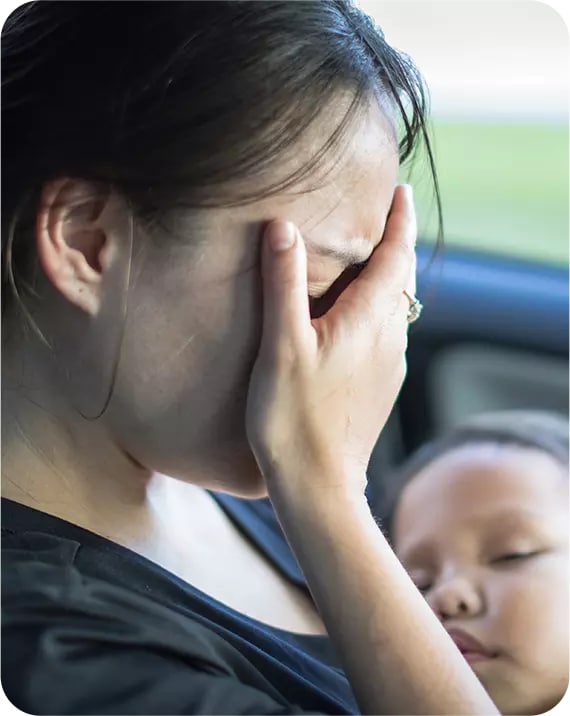
What are the Causes of Bipolar Disorder?
Genetics is the main known cause of bipolar disorder. People who have a first-degree relative, such as a sibling or parent, with the condition, are more likely to get bipolar disorder.
There are at least 15 different variants of bipolar disorder on gene analysis. Most severe types can be accompanied with delusions, hallucinations, and abnormal behavior while the milder types can be present with periods of elevated mood, increased productivity and irritability, and periods of depression. Some mild forms of bipolar type 2 often go undiagnosed because sufferers can be highly productive, and can manage their lives, maintain their jobs and fulfill their responsibilities successfully.
There are several external factors that increase or exacerbate the risk of bipolar disorder. Common stressors that can exacerbate its symptoms include:
- Extreme stress.
- Sleep deprivation.
- Malnutrition.
- Traumatic experiences such as loss of a loved one.
- Drugs such as marijuana and cocaine or alcohol abuse.
- Certain prescription medication.
- Physical illness.
- Hormone shifts such as during pregnancy, childbirth, menopause.
There are no differences in its risk associated with ethnicity, education, marital status, or income.
Is Bipolar Disorder Hereditary?
Yes, bipolar disorder can be passed from parent to child. Research suggests that people who have a relative with the disorder, have up to a 10 times higher chance of developing the disease than those without any family history of the condition.
While genetics clearly plays a role in bipolar disorder, it is important to remember that most people with family history, or relatives who have the disorder, do not develop it. In addition, not everyone with this disorder has a family history of the disease.


Remember that bipolar disorder symptoms can cause unpredictable changes in mood and behavior, resulting in significant distress and difficulty in everyday life tasks or in maintaining relationships. See a Doctor if you are experiencing any abnormal behavior, major mood swings, or significant changes in everyday life activities.
How do I know if I have Bipolar Disorder?
Bipolar disorder doesn’t look the same in each person.
Diagnosing bipolar disorder can be difficult. This is because symptoms such as ADHD and schizophrenia can occur without the disorder, and diagnosis in women can often be complicated due to reproductive hormones.
A combination of tests should be done by a doctor or a licensed professional to know if you are diagnosed with bipolar disorder:
- Physical exam: This includes blood and urine tests as well as recording your medical and family history
- Mental health evaluation: Visiting a psychiatrist, who knows how to look for signs of the illness.
- Mood journal: Keeping a journal to track your moods and chart how you feel and how long these feelings. Doctors may even advise you to record sleeping and eating patterns that could cause behavioral changes.
The Diagnostic and Statistical Manual of Mental Disorders (DSM) outlines symptoms for mental health illnesses, including bipolar disorder. Doctors follow these criteria to confirm if you have bipolar disorder.
Why do people with Bipolar Disorder sometimes experience Stigma?
Most people do not know what bipolar disorder means. The term ‘bipolar’ has been casually thrown around to describe any type of irrational, or unpredictable behavior. However, it is a specific mental health condition, in which a person experiences periods of depression and periods of elevated mood that lasts for days. People with this disorder do not typically have variable mood swings throughout a day, and are usually not irrational or erratic, except during the extremes of a depression or mania episode.


Other bipolar disorder treatments include:
- Electroconvulsive therapy (ECT)
- Sleep medicine
- Acupuncture
- Trans-magnetic stimulation
Is Bipolar Disorder Treatable?
Yes. Bipolar disorder is treatable but is not curable. It’s a lifelong illness that does not have a known cure. However, you can reduce the symptoms and manage your mood swings through a series of treatment options.
In most cases, symptoms of bipolar disorder are treated with medications and psychological counseling, but a detailed treatment plan is individualized based on your specific symptoms.
Treatments may include:
- Medication includes mood stabilizers, such as lithium, antipsychotics, antidepressants, and anti-anxiety medications
- Psychotherapy includes
- Cognitive Behavioral Therapy is a type of talk therapy, where therapists help you understand your thinking patterns and develop positive coping strategies
- Supportive Psychotherapy is type of treatment that helps individuals to talk about their problems, make decisions, and cope with their daily life.
- Psychodynamic Psychotherapy is a sort of therapy that looks at development, defenses, and interpersonal relationships. 04. Psychoeducation is a type of counseling, where you and your loved ones can better understand the disorder and learn to manage it.
- Interpersonal and Social Rhythm Therapy focuses on regulating your daily habits, such as sleeping, eating, and exercising. Making simple lifestyle changes and balancing everyday activities can help you manage your disorder.
Bipolar disorder treatment
The goal of bipolar disorder treatment is to
- Alleviate Symptoms
- Achieve Euthymic or ‘Good’ Mood
- Treat Anxiety and Manage Stress
- Improve Attention, Concentration, and Academic Achievement
- Improve Productivity and Career Success
- Improve Interpersonal Relations
- Restore Sense of Self Worth


Why is it Difficult to Treat Bipolar Disorder?
In order to treat bipolar disorder effectively, it is essential to treat both depressive and manic symptoms properly. The manic or hypomanic phase of this disorder is relatively easy to treat. However, the depressive phase is often very difficult to treat.
In fact, it is common for many psychiatrists to only treat manic episodes and neglect to treat depression. This is why many individuals with this disorder remain chronically impaired due to, often untreated, depressive symptoms.
Does Medical Marijuana help with Bipolar Disorder?
Not really. The term “medical marijuana” can be misleading. Medical marijuana contains TCS, which can cause psychosis and paranoia.
People with bipolar disorder are already prone to psychotic symptoms. After using marijuana, these bipolar patients have a higher tendency of developing psychosis. Moreover, individuals with bipolar type 2 (milder form) are more likely to develop psychosis, paranoia, hallucinations after marijuana use, and can wrongly be diagnosed with bipolar type 1 (more serious form).
Therefore, avoid using marijuana or medical marijuana when you have this disorder.


Can I Drink Alcohol if I have Bipolar Disorder?
While you can drink alcohol and consume cannabis when you have bipolar disorder, it is not recommended. Alcohol may temporarily help during hypomanic and manic phases disorder. However, it only worsens bipolar depression in the long run. Moreover, these people also have a higher predisposition to addiction.
Therefore, it is advised not to self-medicate your condition with alcohol and/or cannabis and be cautiously conservative with your use of these substances.
Can I get Married if I have Bipolar Disorder? Can I have Kids with Bipolar Disorder?
Women with bipolar disorder can relapse more often, during pregnancy due to hormonal changes. Therefore, if you suffer from bipolar disorder, you must keep yourself healthy so you can have kids and be a good parent.
Remember, many people with this disorder have successful marriages and are great parents. Fighting the negative social stigma of mental disorders and supporting each other can help you cope with bipolar disorder.


Do people with Bipolar Disorder have Normal Intelligence?
Yes. People with bipolar disorder have normal IQ/intelligence and can manage their condition to live normally. Because people with this mental health condition can experience changes in mood, energy, and activity levels, it can make their day-to-day activities difficult. However, it does not suggest lower intelligence. Research indicates that this disorder may be up to four times more common high achieving students.
How to Live with Bipolar Disorder?
Implementing certain lifestyle changes can help people with bipolar disorder live healthy and happy lives. Managing this disorder includes:
- Managing your eating and sleeping patterns.
- Eliminating stress or any circumstances that trigger stress.
- Avoiding stimulants such as alcohol and drugs, especially those like cocaine that can trigger manic episodes.
- Consistent psychotherapy and counseling to help control moods and abrupt behavior.
- Ensuring correct and careful medication titration – A majority of people with bipolar disorder are not on the correct medication, leading to ineffective treatment of their condition. Unlike people with unipolar disorder, who can stay on the same medication for indefinite periods, people with bipolar disorder need to frequently adjust their medication to address their manic, hypomanic, or depressive symptoms. These patients should continuously track their moods (in a journal), their medication, and its effects as well as regularly visit their psychiatrist so that they can ensure correct medication, and adjustments when required.
- Joining peer support groups – Being part of a community that understands and relates to what you’re going through can give hope and offer support to bipolar patients. Further, receiving advice, insight, and feedback can help you better understand the illness and manage your condition.

How to Cope with Bipolar Disorder?

The first step to coping with bipolar disorder is knowing that you are not alone. Studies show 60 million people suffer from and live with this chronic mental illness.
It is vital to remember that this disorder is treatable. By receiving the right bipolar disorder treatment, you can successfully control your condition. In fact, some of the world’s most successful people with this disorder have learned to control and use their hypomanic episodes to enhance their productivity and creativity.
Bipolar disorder isn’t all bad. People with this condition tend to have above-average intelligence, social skills, humor, and creativity. One of the best ways to cope with this mental health condition is to educate yourself and those around you. Knowing what you’re dealing with can not only help you survive this illness but also let you live a happy and healthy life.
Coping with this disorder involves a disciplined lifestyle such as regular eating and sleeping routines, refraining from substance abuse, psychotherapy, and monitored medication.
Most importantly, don’t be afraid to seek professional help when you require it. You can always get back to us.
Always Remember

- You are not alone
- Bipolar symptoms are treatable
- Bipolar disorder isn’t all bad
- Frequent psychiatrist visits and monitored medication is a crucial part of your bipolar disorder treatment
- Maintain a disciplined lifestyle
- Frequent psychiatrist visits and monitored medication is a crucial part of your bipolar disorder treatment
- Seek professional help
You may need urgent psychiatric treatment if you are suffering from the following symptoms:
- Hallucinations
- Delusions
- Not Knowing what is real and what’s not
- Suicidal Thoughts
- Severe Weight loss
- Diminishing School Grades due to symptoms
- Problems at Work due to symptoms
- Not taking care of yourself, including Medical Care or Personal Hygiene
- Not being able to Take Care of Children
- Interpersonal Conflict and problems with family, friends and spouse
- Worsening Depression
- If others suggest you need bipolar disorder treatment
How much does it cost to see an online psychiatrist at Gaba Telepsychiatry?
Your first online appointment with one of our psychiatrists will cost $400. The follow-up appointments will be $250. If you have out-of-network benefits, we can submit claims on your behalf.
